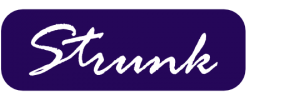Strunk Response to January 2024 CFPB Proposed Changes to Overdraft Fees
In mid-January of this year, the Consumer Financial Protection Bureau (CFPB) proposed a new rule to restrict overdraft fees charged by very large financial institutions (Those with assets over $10B). View the PDF of the Proposed Rule with Request for Comment here:
When the Board of Governors of the Federal Reserve System first adopted Regulation Z in 1969, it excepted from Regulation Z’s definition of finance charge any charges for honoring checks that overdraw a checking account unless the payment of the check and imposition of the fee were previously agreed upon in writing. The Board subsequently made “minor editorial changes” to this exception, (e.g., to reflect “items that are similar to checks), such as negotiable orders of withdrawal. Under the new proposed rule, Regulation Z would generally apply to overdraft credit provided by very large institutions unless it is provided at or below costs and losses as a courtesy to consumers.
The proposed rule would accomplish this by updating two regulatory exceptions from the statutory definition of finance charge. First, the proposal would update an exception that currently provides that a charge for overdraft is not a finance charge if the financial institution has not previously agreed in writing to pay items that overdraw an account so that the exception would not apply to “above breakeven overdraft credit”. Second, the proposal would update a related exception that provides that a charge imposed in connection with an overdraft credit feature (e.g., a charge for each item that results in an overdraft) is not a finance charge if the charge does not exceed the charge for a similar transaction account without a credit feature (e.g., the charge for returning each item). The CFPB has provided two options to very large financial institutions to determine whether an overdraft charge is considered above breakeven overdraft credit. A financial institution may calculate its own “breakeven standard,” charging a fee required to cover losses and direct costs related to the provision of courtesy overdrafts; or a financial institution may use a “benchmark fee” of either $3, $6, $7, or $14, determined by the CFPB by analyzing charge-off losses and cost data.
The proposed rule represents a pivotal development in consumer finance regulation and would have a negative impact on the financial industry and consumers. Overdraft protection has been beneficial to millions of consumers since its inception. Research supports the fact that consumers who use overdraft protection, especially those who use it frequently, value the service. Even the Consumer Financial Protection Bureau’s (CFPB) research supports this fact. Furthermore, the CFPB has access to consumer complaint data in its own database, showing that complaints regarding overdraft protection and fees are extremely low. Strunk believes that a regulatory agency essentially setting limits on fees that can be charged by a financial institution sets a very dangerous precedent.
At present, the proposal pertains to financial institutions under the CFPB’s jurisdiction – those with assets over $10 billion. It is unclear what the impact will be on institutions with assets of $10B and below. However, if this proposal is enacted, the possibility exists that it will be adopted by other regulatory bodies. Also, regardless of additional regulatory action, all institutions may feel “competitive pressure” to follow the standard set by the very large financial institutions.
For now, no changes to existing overdraft programs should be made prior to knowing exactly how this process will play out. When discussing Overdraft Privilege and the current regulatory landscape, Strunk always emphasizes two things:
- If you charge a sustained or continuous overdraft fee today, discontinue this practice immediately. Strunk has never endorsed that practice, and it is a flash point for regulators.
- If you charge re-presentment OD fees, discontinue this practice as well and investigate the 24-month look-back restitution to consumers. This is an area where regulators have come out with clear guidance in the last 18 months and Strunk has previously issued recommendations to clients.
If your organization has questions regarding this matter or would like to schedule time to discuss, please contact us at support@strunkaccess.com or 800-728-3116.



